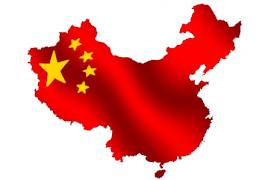 Consider this striking paradox: Just as the Energy Information Administration announces that new shale discoveries are driving record increases in U.S. proved oil reserves and near-record additions in proved natural gas reserves, huge energy companies are reporting sagging production and profits. Royal Dutch Shell, for example, posted a 60 percent drop in second-quarter profits, largely because of drilling disappointments at its North American shale assets. Exxon Mobil, the largest American energy company, reports a 57-percent drop in quarterly earnings. It, too, has had trouble capitalizing on the U.S. shale boom. Ditto for Chevron.
Consider this striking paradox: Just as the Energy Information Administration announces that new shale discoveries are driving record increases in U.S. proved oil reserves and near-record additions in proved natural gas reserves, huge energy companies are reporting sagging production and profits. Royal Dutch Shell, for example, posted a 60 percent drop in second-quarter profits, largely because of drilling disappointments at its North American shale assets. Exxon Mobil, the largest American energy company, reports a 57-percent drop in quarterly earnings. It, too, has had trouble capitalizing on the U.S. shale boom. Ditto for Chevron.
Skeptics will point to Big Oil’s difficulties as evidence that what many have taken to calling the “shale gale” is more hype than reality. But it more likely confirms the thesis set out a year ago by Philip Verleger, a noted energy expert. He posits that the winners of the shale revolution will be nimble companies capable of quickly drilling on a vast number of low-cost sites, rather than “Exxon-type” integrated oil companies that “excel at developing a few very expensive, highly productive projects that yield high-cost supplies.”
Verleger’s point about organizational constrains is underscored in a new essay put out by the Center for Strategic & International Studies. In it, Jonathan Chanis, an emerging markets specialist, argues that:
The proximate cause of the US energy revolution is technological, but the more important cause is better industry organization and a more agile and adaptable oil and gas business culture…
… One of the primary reasons the US natural gas industry is so successful is because it is composed of thousands of independent companies. These companies are innovative and they are able to deploy nimbly hundreds of rigs and other exploration and production assets.
So far, much of the burgeoning U.S. production of shale oil and natural gas has come from independent companies, and not the well-known multinational giants. Indeed, a recent survey of 50 of the world’s biggest energy producers found that they are facing sharply rising production costs and shrinking profit margins. And yet for every Exxon and Shell, there are smaller, more fleet-footed energy companies that have managed to increase output, cash flow and earnings.
All of this has stark implications for China, which is making a big push to increase its shale gas production. The country possesses vast shale gas deposits, thought to be much larger than America’s. But so far the high-cost, state-owned behemoths that dominate the energy sector have stumbled in their efforts. In an article three months ago, the Washington Post reported that Chinese companies had managed to drill only about 60 shale exploration wells over the past two years, roughly the same number drilled every 10 days in North Dakota, an epicenter of U.S. shale production. The newspaper quoted an executive from a multinational oil company as calling China’s ambitious plans for natural gas production “absolute fantasy.” An article last month in the Financial Times echoes this conclusion.
To be sure, organizational constraints are not the only reason China is lagging far behind on the shale frontier. Government ownership of mineral rights is another inhibiting factor. As the Wall Street Journal explained in a recent article, the shale revolution in North America was brought about “by small, independent companies willing to take enormous financial risks, and helped along by landowners who owned their mineral rights and were ready to sell for a share of the profits.” Indeed, much of the U.S. shale revolution has played out on private land. A new Congressional Research Service study finds that all of the dramatic surge in U.S. oil production from October 2007 to September 2012 occurred on land not owned by the federal government and that the federal share of total U.S. crude oil production fell nearly seven percentage points in this period.
Other serious challenges abound in China, including the complex geology of the country’s shale fields; a lack of the copious water resources needed for new hydraulic fracturing (“fracking”) drilling techniques (on China’s dire problems with water scarcity, see here and here); inadequate pipeline networks to transport natural gas to industrial areas; as well as bureaucratic wrangling within the central government over which agency takes the regulatory lead.
But, as Chanis argues, China’s bottom-line problem has to do with industry organization and business culture. He urges Beijing to break up the “domestic oil and gas oligopoly” and privatize mineral ownership but acknowledges this may be unrealistic since it strikes “at the heart of Communist Party control and privilege.”
Indeed, for all of the calls for reform coming from China’s new leadership, it is an open question whether the requisite political will can be mustered for a fundamental revamp of the state-centric model of economic management, especially since the country’s 145,000 state-run companies are not only a key source of wealth and privilege for rent-seeking Communist Party elites but also generate important revenues for all levels of government.
I’ll explore the prospects for true economic reform in greater detail in an upcoming post, but for now it seems a safe bet that China will continue to flounder in its efforts to replicate the U.S. energy renaissance. And this in turn has significant bearing on the evolving balance of power between Washington and Beijing.
This commentary is cross-posted on Monsters Abroad. I invite you to connect with me via Facebook and Twitter.